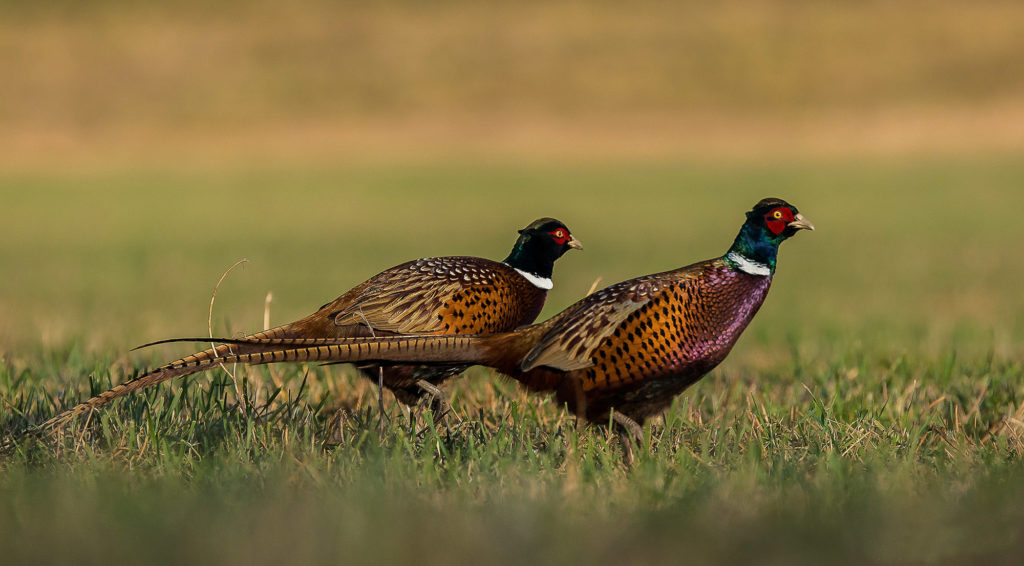Faisán
Dijiste que esta mañana lo matarías.
No lo mates. Todavía me inquieta
el sobresalto de ese excéntrico, cadencioso, cabeza negra.
A través del césped sin podar en la colina del olmo.
Es propio del faisán,
apenas el ser visitado en absoluto.
No soy religioso: no es
como si pensará que tuvo espíritu
está simplemente en su elemento.
Aquello le confiere una majestuosidad, un derecho.
La gigantesca huella del último invierno,
el rastreo de la nieve en nuestra corte
Lo maravilloso está, en esa palidez
A través del oscurecer del gorrión y el estornino.
Entonces ¿es acaso su extravagancia? Es singular.
Pero una docena podrían ser dignos de poseerla
cientos, en esa colina verde y roja,
cruzando y recruzando: ¡magnífico!
Así vivida, en tan buena forma.
Es una pequeña cornucopia.
Se desprende, café y estridente como hoja.
Y es sencillo, en el olmo
asolearse en el narciso.
Estúpidamente cedo. Déjalo ser, déjalo ser.
Pheasant
You said you would kill it this morning.
Do not kill it. It startles me still,
The jut of that odd, dark head, pacing
Through the uncut grass on the elm’s hill.
It is something to own a pheasant,
Or just to be visited at all.
I am not mystical: it isn’t
As if I thought it had a spirit.
It is simply in its element.
That gives it a kingliness, a right.
The print of its big foot last winter,
The trail-track, on the snow in our court
The wonder of it, in that pallor,
Through crosshatch of sparrow and starling.
Is it its rareness, then? It is rare.
But a dozen would be worth having,
A hundred, on that hill-green and red,
Crossing and recrossing: a fine thing!
It is such a good shape, so vivid.
It’s a little cornucopia.
It unclaps, brown as a leaf, and loud,
Settles in the elm, and is easy.
It was sunning in the narcissi.
I trespass stupidly. Let be, let be.
